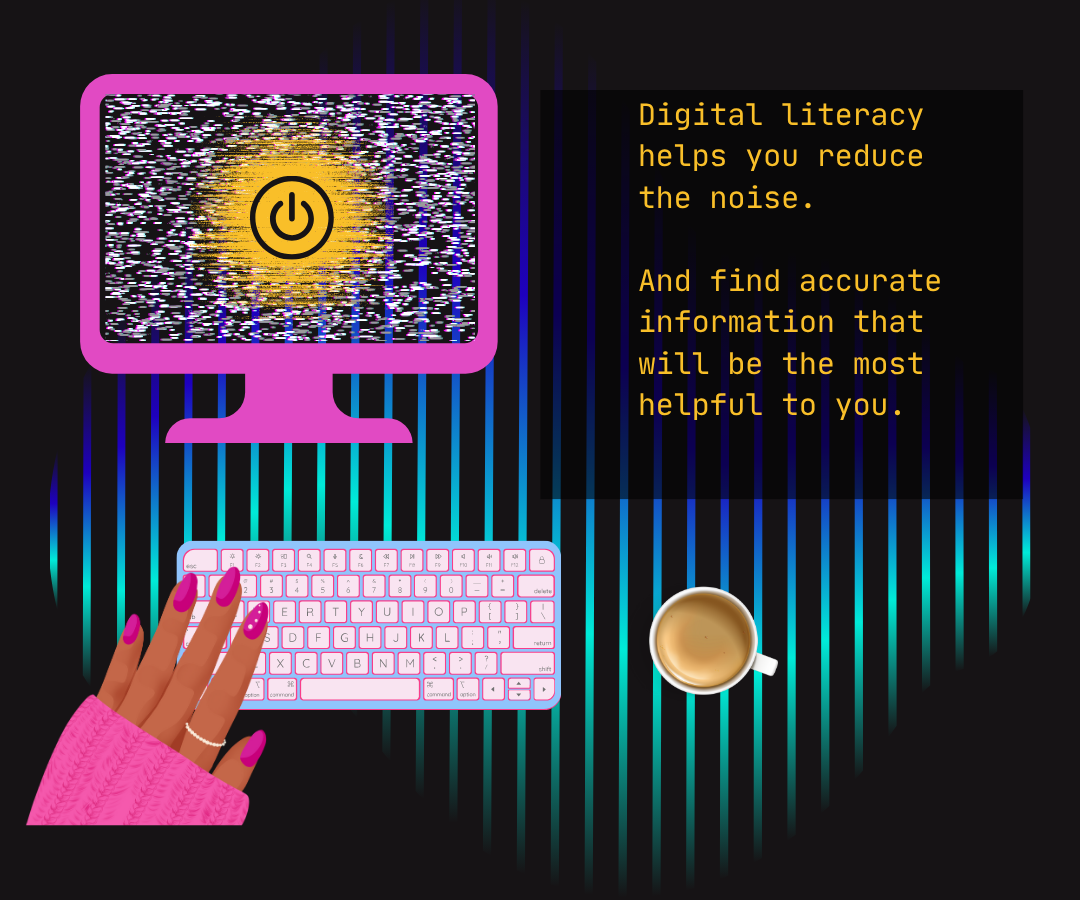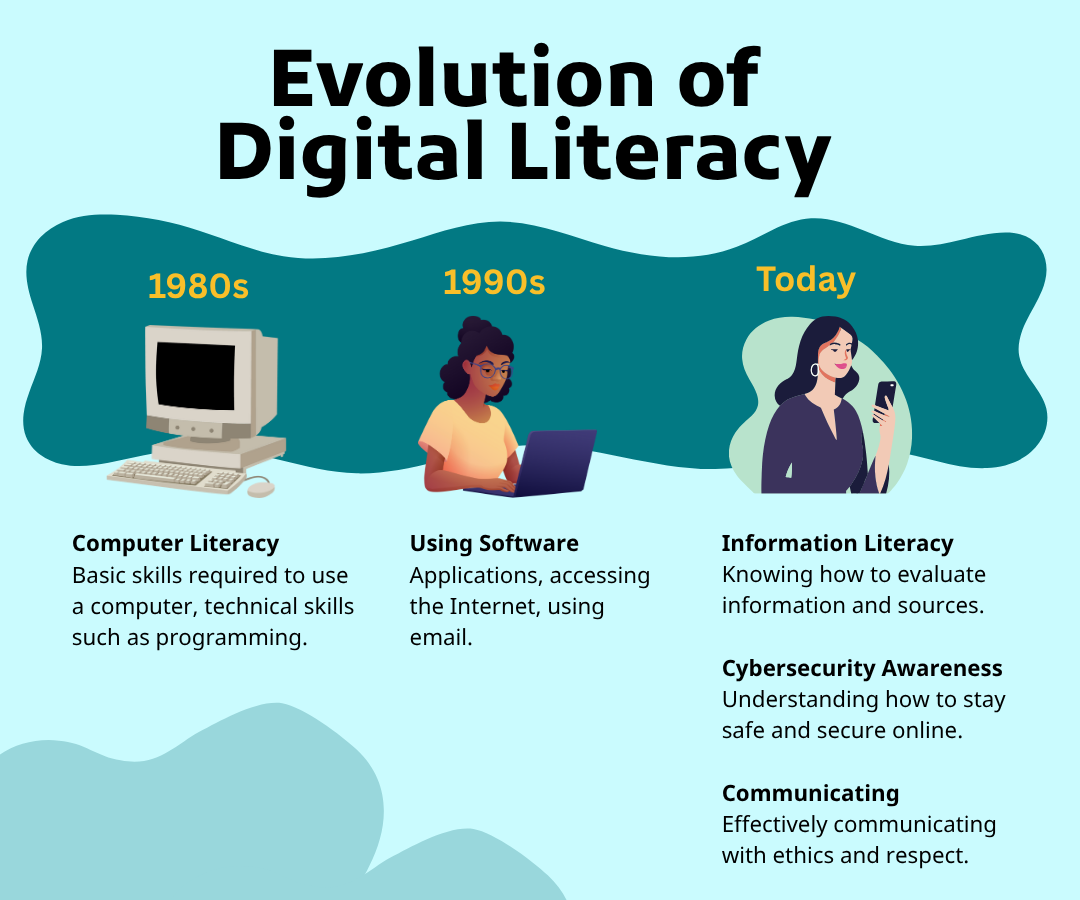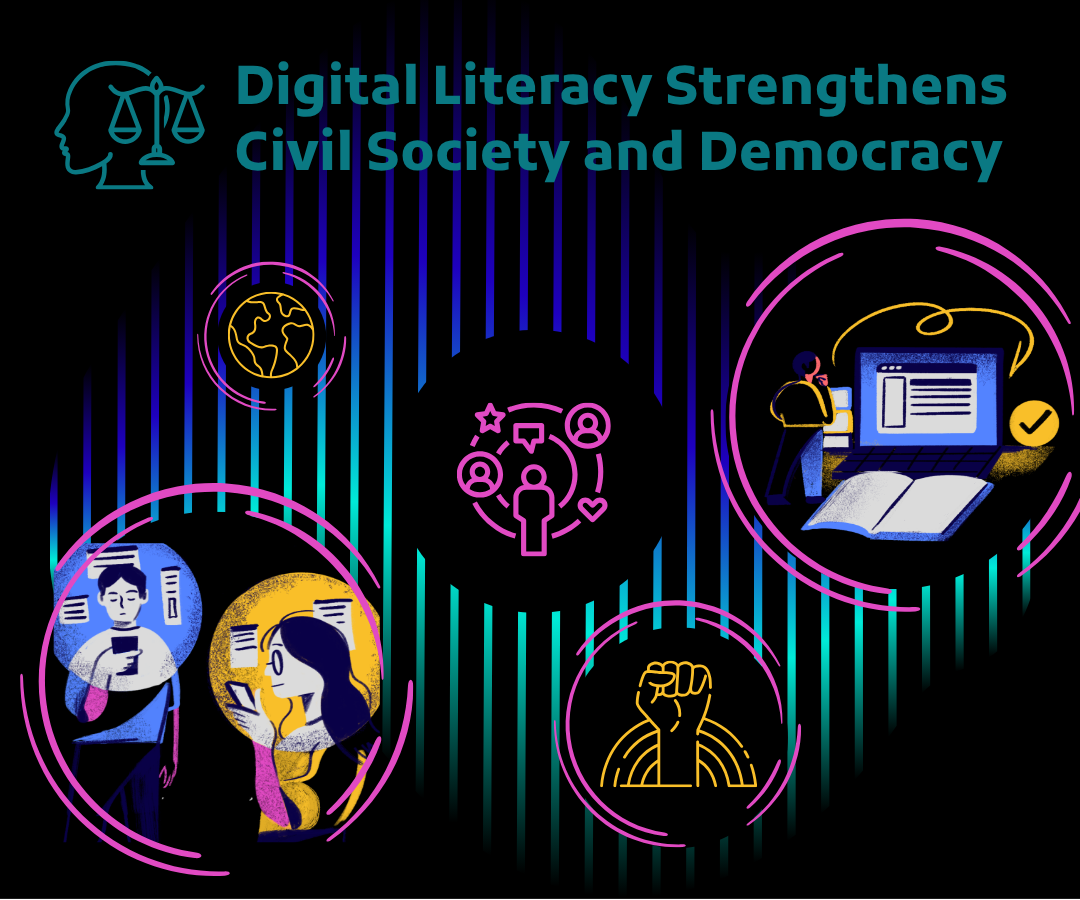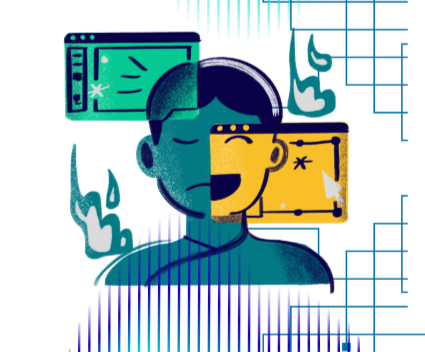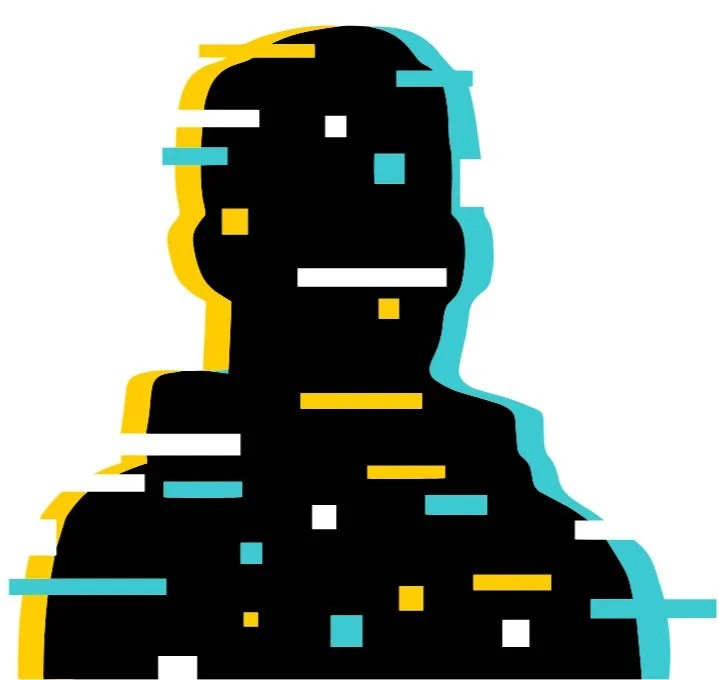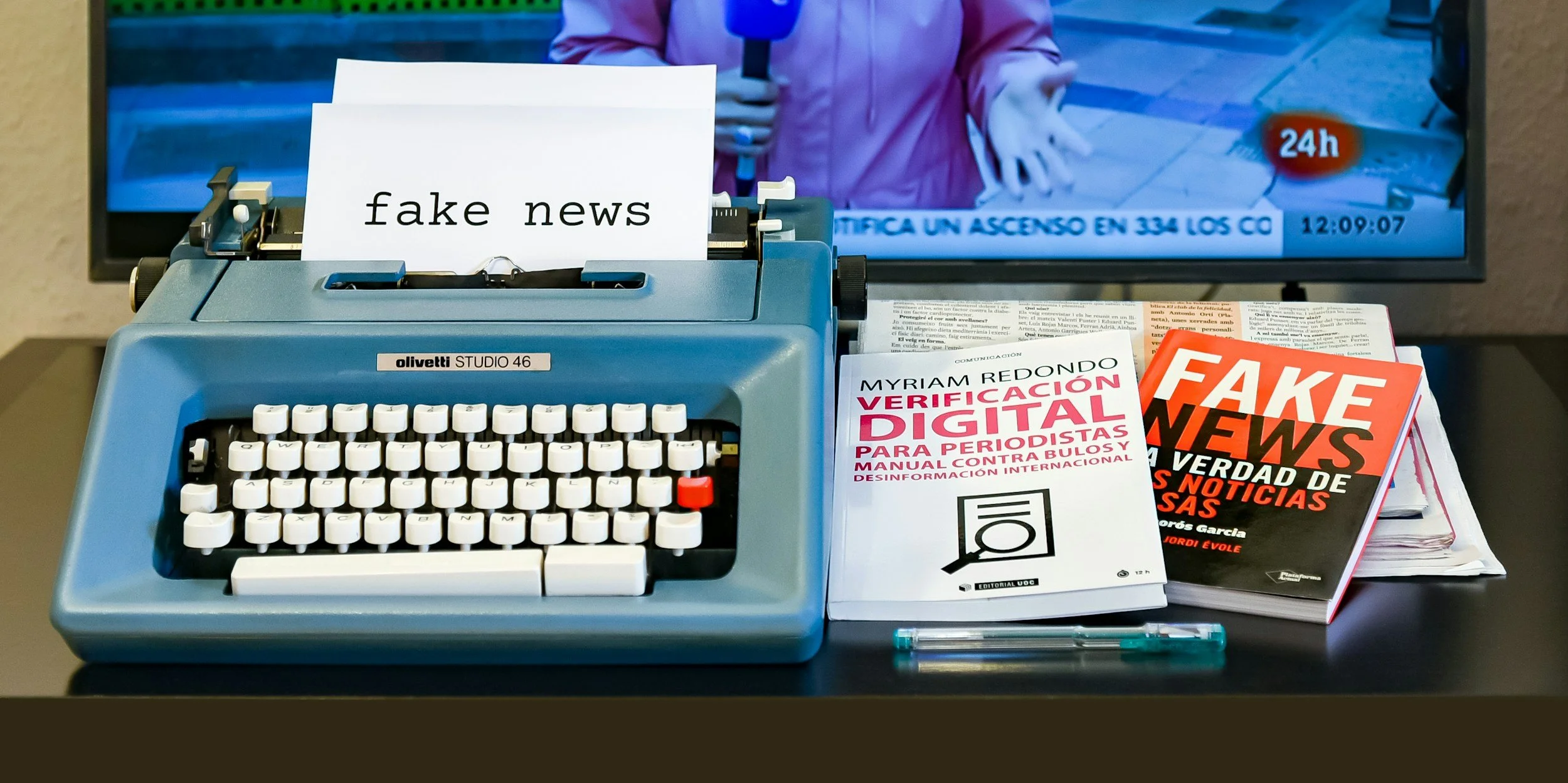What is Digital Literacy? And Why It Matters
Join us at the Global Gathering, Sept. 4, 5 and 6 in Portugal.
Connect with defenders at the intersection of tech and rights.
Digital literacy is one of the most important mindsets we can develop to strengthen and protect our communities. It is also foundational to digital rights.
This article is a primer to be used by groups entering the digital rights or digital security space. It reflects global frameworks and research in digital literacy done by organizations like UNESCO and individuals such as digital inclusion specialist and practitioner, Danica Radovanović
Technology has become the basis for how we learn, work and participate in our society. In this context, digital literacy strengthens our ability to critically think about what we see online. It helps navigate information when making decisions about our health, family, and work. Most importantly, digital literacy has become a pillar for a healthy civil society and essential to building strong, inclusive democracies in the face of escalating digital threats, such as online surveillance, censorship, and disinformation.
What Exactly Is Digital Literacy?
At its core, digital literacy, as described by UNESCO, is “the ability to use digital technology, communication tools, and networks to locate, evaluate, use, and create information. It goes far beyond simply knowing how to operate a computer or a phone — it’s about understanding why, when, and how to use digital tools effectively, safely and securely. In simpler terms, it’s a mix of technical know-how, critical thinking, and ethical awareness.
A digitally literate person can also distinguish reliable information from disinformation, think critically about what the information they consume, and engage online responsibly, ethically, and safely.
A Short History: From Computer Skills to Information Literacy
The definition of what it means to be digital literate has changed depending on the time and place. As technology has progressed, so has the meaning of literacy — evolving from the simple use a computer to understanding the social, cultural, ethical, and human implications of our digital actions.
In the 1980s, digital literacy was known as computer literacy, focusing on basic computer and technical skills such as programming. In the early 1990s, it shifted to focus on knowing how to send an email, navigate the World Wide Web, and applications.
Today, digital literacy encompasses many skills due to the growing challenges such as disinformation, and new technologies such as artificial intelligence. As technology has become a central place where we learn, connect, and participate in civic life, digital literacy now encompasses areas ranging from information literacy (knowing how to evaluate information and sources), to cybersecurity awareness (knowing how to stay secure and safe online), to how to communicate effectively with respect.) The basket of skills we need to be digital literate will continue to grow as technology continues to grow.
The Core Components of Digital Literacy
Digital literacy is a mindset that requires a combination of interconnected abilities and skills.
🧩 Technical and Operational Skills
Using digital tools effectively — from apps to learning platforms, to tools such password managers, cloud storage, and troubleshooting issues.
🧩 Critical Thinking and Information Evaluation
Knowing how to distinguish reliable information from misinformation is one of the most crucial digital skills. This involves checking sources, understanding bias, and questioning how algorithms shape what we see.
🧩 Communication
Being able to communicate respectfully online, work in teams across platforms, and understand tone and context in digital conversations.
🧩 Safety, Security, and Privacy
From setting strong passwords to recognizing phishing attempts, to using encryption tools, digital literacy includes understanding how to protect your data and your digital wellbeing
🧩 Digital Citizenship and Ethics
Understanding the broader implications of technology — how it affects democracy, human rights, and social justice.
🧩 Digital Expression: Creativity and Creation
Whether it’s creating a post, infographic, or producing a video, digital expression is central to literacy. We aren’t only consuming, we also contribute.
Why Digital Literacy Should Matter to You 💬
It has become a social necessity — shaping how we access healthcare, education, government services, and connect with friends and family.
Your level of digital literacy directly shapes your society. Understanding how information moves online helps us recognize manipulation, resist disinformation, defend freedom of expression, and ensure we are taking decisions based on facts.
Communities are better equipped to share their stories, challenge injustice, and make their voices heard in civic life.
It builds stronger, more connected communities that can collaborate and build across borders.
AI, Trust and Safety
AI has become the next frontier society is grappling with navigating. In this thought piece, Radovanović shares how fragile trust is becoming in an age where robots can borrow the voices of those close to us. She also shares tips on how to spot AI scams.
How to Strengthen Your Digital Literacy: Basic Steps
Here are practical ways to grow your digital literacy skills
Verify before you share. Check sources before reposting information.
Practice digital hygiene. Update software, use strong passwords, and learn basic digital security.
Explore new tools and technologies. Educating yourself about and experimenting with technology helps you builds confidence. It also helps you better
understand the impact it will have on your life and society at large.Encourage open discussions. Talk with peers about how things like algorithms influence what we see online, or how technologies impact how we connect to each other. For example, did you know that when Google Maps started being used more widely, it changed traffic patterns, and thus neighborhoods?
Model respect online. Digital spaces thrive when we treat others with care and how we want to be treated. This also means calling out bad behavior when we see it.
How Digital Literacy Strengthens Civil Society, Democracy
For many, digital literacy and access to information are fundamental human rights. Check out an interview with Radovanović on the Ready Living Podcast where she shares how technology like AI is reshaping our interactions, what it means to build ethical spaces in an often chaotic digital world, and how communities across different geographies are practicing digital literacy in their own ways.
It Expands Participation
Digital literacy enables people to participate meaningfully in public life — from signing petitions to informing the public about issues. When citizens understand how digital platforms and tools work, they can better express opinions, organize and mobilize others, and influence policy more effectively…and safely.
It Strengthens Accountability and Transparency
Digitally literate citizens can verify facts, analyze data, and track government or corporate behavior, making it harder for corruption or disinformation to go unchecked. When people know how to identify credible sources, use tools such as open-data portals, or document human rights abuses safely, transparency becomes a shared social responsibility.
It Reduces Vulnerability to Disinformation and Manipulation
Digital literacy gives individuals the critical thinking skills to recognize disinformation, understand how content travels online and is amplified and, most importantly, make informed choices. For civil society movements, these skills are essential for maintaining trust and advancing evidence-based advocacy.
It Empowers Collaboration Across Borders
Modern social movements are global. Digital literacy allows civil society to collaborate, share knowledge, and mobilize securely across languages and regions. With collaborative tools, open-source platforms, and digital communication norms, communities can amplify their impact beyond borders.
It Builds Safer and More Inclusive Online Spaces
Digital literacy includes understanding online safety and privacy, particularly for journalists, activists, and marginalized communities facing online harassment, surveillance, and/or censorship. When communities know how to safeguard themselves and their data, use privacy technologies such as encryption tools, and respond to online threats, they strengthen the collective safety of their communities and civic spaces.
The Challenges Ahead
While digital literacy is vital, not everyone has equal access to the education, technology, or infrastructure needed to develop it. The digital divide, shaped by factors like income, geography, and language, continues to widen. Meanwhile, new technologies such as artificial intelligence, surveillance systems, spyware and tactics, such as the use of deepfakes, are raising the bar for what it means to be “literate.”
Authoritarian and bad actors are creating more digital, legal and physical barriers to prevent citizens from being digital literate, accessing the Internet, or using technologies effectively to share their stories and/or advance human rights and social justice. They are also making it difficult for citizens to find accurate and trustworthy information by manipulating the flow of information, spreading disinformation and/or hate speech and, in some countries, attacking and censoring trusted independent media sources.
For communities, this means approaching digital literacy as a matter of empowerment and rights, essential for human rights and social justice.
The Future of Digital Literacy
=
The Future of Digital Literacy
As technologies continues to evolve and their use becomes more prevalent - including the use of AI or nefarious tech like spyware - digital literacy will increasingly include understanding how tech is shaping our experiences, communities, the very data we share and consume, and our beliefs. The future must balance innovation with our human needs and rights, and by guided by the principle of harm reduction to people and societies, a basic tenet of digital rights.
At TCU we believe that digital literacy is part of a broader ecosystem of digital rights — the right to learn, create and express ourselves safely and securely online without interference, risks or threats. Strengthening our digital literacy builds more resilient communities that can defend our collective rights. It guarantees that everyone— regardless of background — has the tools to tell their story, thrive online and offline, and contribute towards shaping the world we want to see.
FAQ on Digital Literacy
1. What does digital literacy mean?
The ability to use digital technology, communication tools, and platforms securely, safely, responsibly, and effectively to locate, evaluate, and use accurate, trustworthy information. Also, developing a strong understanding of how technologies are impacting our society, civic spaces, and communities, and how we can use them to improve our lives and communities.
2. Why is digital literacy important today?
Digital literacy has become essential for participating in civic life and society, shaping how we access areas such as our healthcare, education, and government services, and influencing the personal and collective decisions we make. Digital literacy helps us protect our communities and rights, and make better informed decisions.
3. What are components of digital literacy?
Technical skills: using hardware, software, online platforms, and troubleshooting problems
Critical thinking: evaluating information and identifying disinformation
Communication: engaging respectfully and effectively online
Safety and privacy: protecting personal data and our digital wellbeing
4. How is digital literacy connected to human rights and democracy?
Digital literacy has become fundamental to protecting freedom of expression, privacy, and access to information - important foundations of democracy. It empowers citizens to hold institutions accountable, participate in civic life, and effectively mobilize around issues or goals. It helps citizens analyze content critically, verify sources, and recognize manipulation — key for fighting disinformation and propaganda - so they can make better decisions for themselves and their communities. Additionally, more and more human rights and social justice groups and citizens are facing escalating threats related to digital surveillance and censorship, designed by nefarious actors to weaken civil society and democracy.
5. What are some examples of digital literacy in everyday life?
Examples include identifying phishing emails, using privacy settings on social media, fact-checking information found online, and understanding how algorithms influence what we see online.
6. How can we promote digital literacy?
By integrating digital literacy into education and training programs, either at work or schools; Have
conversations in our communities on topics such as online behavior, the impact existing or new technologies are having on our beliefs and decisions; encouraging critical thinking in response to what we read online.
7. How can individuals improve digital literacy skills?
Practicing safe online habits (like enabling two-factor authentication)
Following credible sources of information
Participating in community workshops focused on digital skills and online safety
Follow digital literacy experts for tips and best practices, such as on Substack Digital Serendipities

